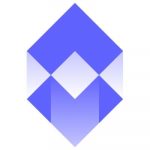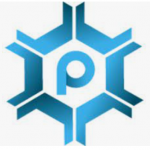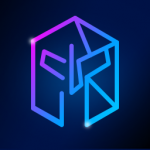
Algorand (ALGO) is a Layer-1 blockchain designed to process transactions quickly and cheaply, similar to major payment processors like Visa or Mastercard. While Ethereum is currently the world’s largest L1 blockchain, Algorand is a fierce competitor, as it’s a scalable, highly efficient platform that can immediately finalize transactions.
Algorand implements a technology called Pure Proof of Stake (PPoS) to validate transactions, which helps it maintain speed and energy efficiency. Many blockchain projects have chosen to build on Algorand because of these benefits, but is it a serious competitor to the Layer 1 throne?
In this article, we’ll discuss some of the top projects building on Algorand in 2022, so you can decide whether to add ALGO to your portfolio.
| Category | Daily Users | Daily Transaction Volume | Total Value Locked (TVL) | |
| Tinyman | Lending | 1.4k | $552,000 | $13.73M |
| Algofi | DEX | 575 | $200,000 | $88.49M |
| Folks Finance | Lending | 172 | $62,800 | $79.65M |
| Pact | DEX | Not available | $206,000 | $7.3M |
| Humble DeFi | DEX | 394 | $327,800 | $4.74M |
| GARD Protocol | Liquid Staking | Not available | Not available | $1.76M |
| Yieldly | Yield | 615 | $0.45 | $433K |
Tinyman
Category: Lending
Daily Users: 1.4k
Daily Transaction Value: $552,000
Total Value Locked (TVL): $13.73M
Tinyman is a decentralized marketplace that supports all tokens on Algorand’s blockchain.
The Tinyman platform allows liquidity pools between Algorand and different Algorand standard assets (ASAs). Participants can even form liquidity pools between ASAs themselves. In other words, a token doesn’t need to be listed on the exchange to trade it.
Additionally, developers and users can set up their own liquidity pools for token pairs that previously didn’t exist. All of this is possible due to Algorand’s fast, cheap, and secure protocol.
Thanks to Algorand’s decentralized layer-1 solution, Tinyman has overcome usability and scalability challenges-big hurdles for many emerging DeFi ecosystems. The layer-1 solution utilizes the Pure Proof-of-Stake consensus mechanism, which allows platforms like Tinyman to scale to millions of users while maintaining a high transaction rate and not incurring significant costs to participants. It also does all of this while remaining energy-efficient and environmentally-friendly.
 Algofi
Algofi
Category: DEX
Daily Users: 575
Daily Transaction Value: $200,000
Total Value Locked (TVL): $88.49M
AlgoFi was the first lending platform on Algorand. It facilitates lending and borrowing and offers STBL, an Algorand-native stablecoin.
AlgoFi offers lending for five different tokens on the Algorand blockchain: ALGO, goBTC (a wrapped version of bitcoin for trading on Algorand), goETH (the same for Ethereum), STBL, and USDC.
In addition to lending and borrowing services, AlgoFi also offers staking: participants who stake STBL can earn an annual yield.
In the future, AlgoFi plans to offer more traditional banking services, such as savings accounts and credit cards, which would be powered through Algorand’s rapidly growing ecosystem.
 Folks Finance
Folks Finance
Category: Lending
Daily Users: 172
Daily Transaction Value: $62,800
Total Value Locked (TVL): $79.65M
Folks Finance is a capital markets protocol built and operated on Algorand that offers both lending and borrowing.
Folks lenders can deposit liquidity and start to earn a continuous return instantly. Borrowers can request crypto loans by locking up deposited funds as collateral.
Folks Finance is inspired by the company’s mission to bring decentralized financial services to the masses. It welcomes wallets of all sizes and plans to make the protocol globally accessible. The protocol offers a friendly and straightforward user interface, allowing beginner crypto investors to benefit from the platform.
Folks Finance takes advantage of Algorand’s fixed, low-cost, high-speed transaction capabilities. It also leverages the Algorand Virtual Machine (AVM) to create a financial business model that helps ensure the economic viability of the protocol.
 Pact
Pact
Category: DEX
Daily Users: Not available
Daily Transaction Value: $206,000
Total Value Locked (TVL): $7.3M
Pact describes itself as a mobile-first designed trading experience. It offers low transaction fees, deep liquidity, and access to smart contract functionality. Through its smart contract functionality, Pact transactions are available to participants of all levels of experience and wealth.
Pact is backed by key strategic partnerships, and it’s been able to build a technically sophisticated platform from the ground thanks to Algorand’s Pure Proof-of-Stake mechanism. Block verification is selected randomly, which ensures the integrity of every user transaction made on the platform.
Pact is also committed to creating an environmentally sound platform, and it fully endorses Algorand’s environmental emission initiatives that aim to create a carbon-negative platform.
 Humble DeFi
Humble DeFi
Category: DEX
Daily Users: 394
Daily Transaction Value: $327,800
Total Value Locked (TVL): $4.74M
Humble DeFi describes itself as a one-stop DeFi suite. Its first product, HumbleSwap, is an Automated Market Maker (AMM) style exchange that allows users to swap, pool, and earn on Algorand staked assets. In the future, users can earn yield by participating in Humble DeFi’s yield farms.
Once Humble is fully operational, it claims it will offer a wide range of features, including yield farming, liquidity mining, a DEX, derivatives, stablecoin pools, cross-chain functionality, a customer support help desk, and more.
Recently, Humble was awarded 2 million ALGOs by the Aeneas Fund to assist in the growth of its total value locked by rewarding early adopters. These ALGOs will be distributed through farming and liquidity mining of ALGO/USDC ALGO/ASA liquidity pools. Therefore, there should be plenty of ways to earn on Humble in the future.
 GARD Protocol
GARD Protocol
Category: Liquid Staking
Daily Users: Not available
Daily Transaction Value: Not available
Total Value Locked (TVL): $1.76M
GARD Protocol is a lending protocol on Algorand that utilizes collateralized debt positions (CDP) to mint the protocol’s native stablecoin, GARD. Users known as “GARDians” will need to lock their ALGOs in a smart contract to earn GARD. GARDians can also vote directly on the GARD Protocol.
GARD is an over-collateralized algorithmic stablecoin. This means that $1.40 worth of ALGO is needed to back 1 GARD, or 140% of the value.
Once the ALGO is locked, users can mint GARD, and the CDP will automatically set a 115% liquidation threshold. If a user falls below this threshold, part of their position will be liquidated and entered into an auction. This is how GARD hopes to stay pegged to the US dollar.
The GARD Protocol is working toward implementing a DAO structure, where GARDians will be able to leverage governance tokens known as GAIN. GAIN holders can vote on various items, such as feature updates and fee revisions, while also receiving a portion of the protocol’s earnings.
 Yieldly
Yieldly
Category: Yield
Daily Users: 615
Daily Transaction Value: $0.45
Total Value Locked (TVL): $433K
Yieldly was the world’s first interconnected and borderless DeFi platform developed and designed on Algorand. In addition, Yieldly built the first DeFi smart contracts native to Algorand. By bringing the power of DeFi to Algorand, Yieldly allows users to pool, swap, and stake ASA assets.
Yieldly further unlocks interoperability with mission-critical infrastructure for Algorand in the form of the world-first bridge solution. With Yieldly, ASA tokens can move easily between all major protocols, including Algorand. The first use case of this is an Algorand to Ethereum bridge that enables nearly instantaneous, low-cost token swaps between the two ecosystems.
Yieldly supports developer growth on Algorand’s cost-effective and high-performing blockchain infrastructure. It’s a platform where innovative ASA-based projects can access users and liquidity, bootstrap adoption, and expedite development.
Investor Takeaway
Currently, there are around 700 companies building projects on Algorand. Algorand has distinguished itself from other blockchains through its Pure Proof of Stake model by offering low fees, robust security, and fast transaction speeds.
That said, the top Algorand projects are essentially clones of similar services on Ethereum. In order for Algorand to become a Layer 1 contender, it must look for one-of-a-kind “killer apps” that leverage Algorand’s technology: apps that couldn’t be copied on Ethereum.
Our thesis is that investing in ALGO is like buying “stock” in the Algorand “company.” We do not currently hold ALGO in any of our Future Winners portfolios.
To follow our analyst research and insight on ALGO, subscribe to our free crypto investing newsletter.


